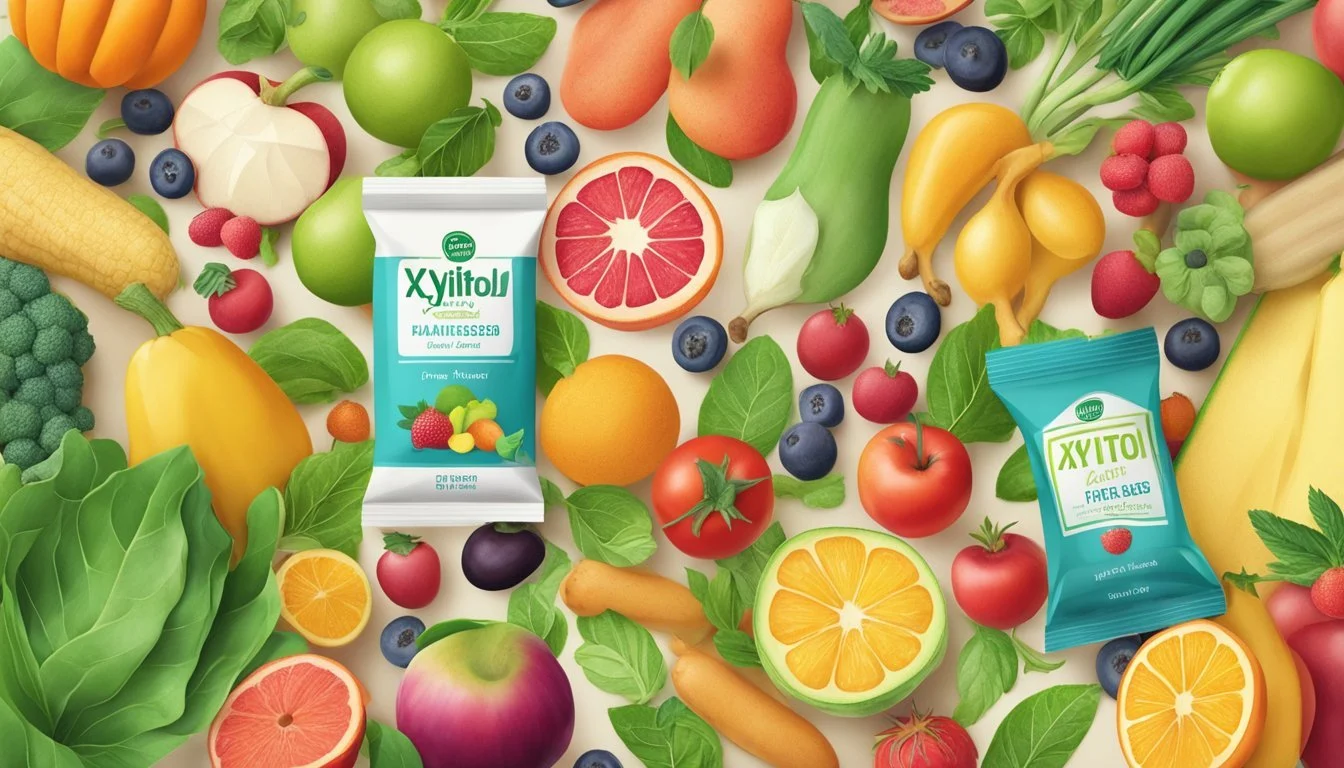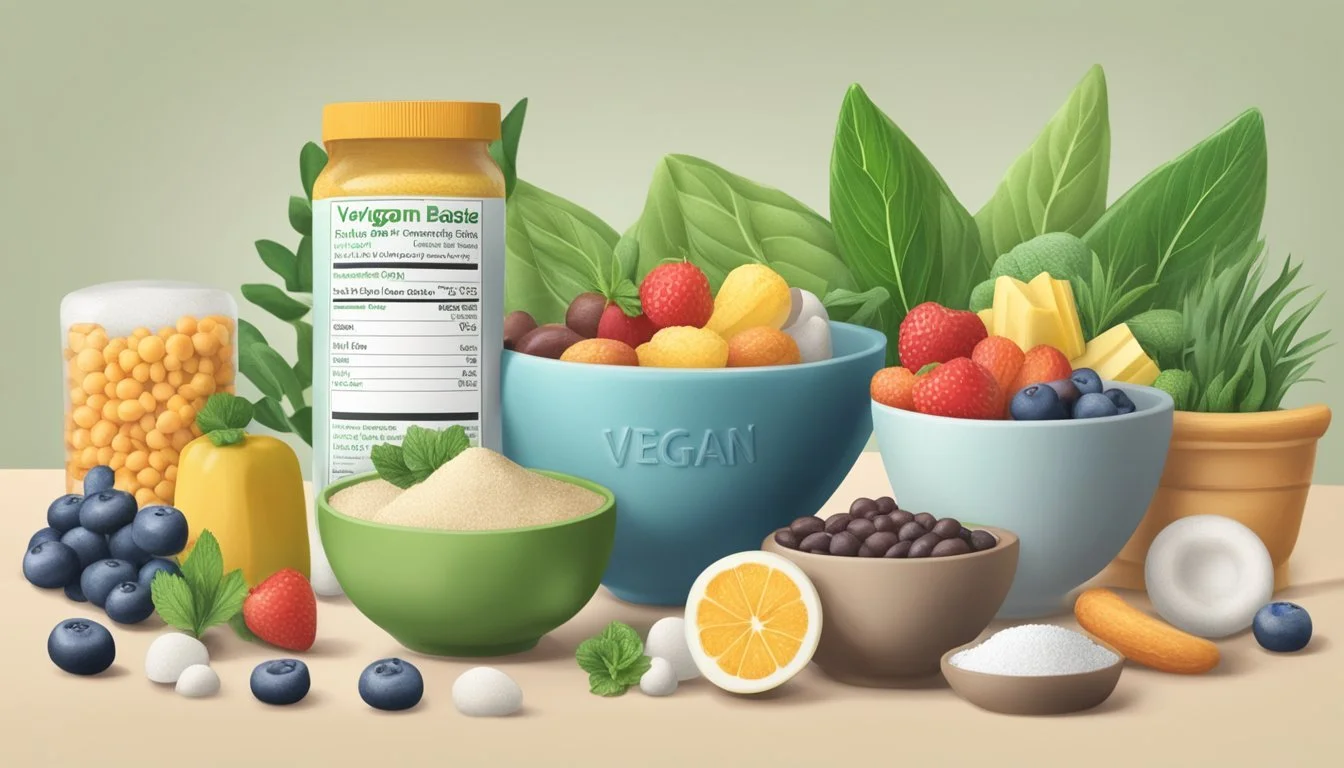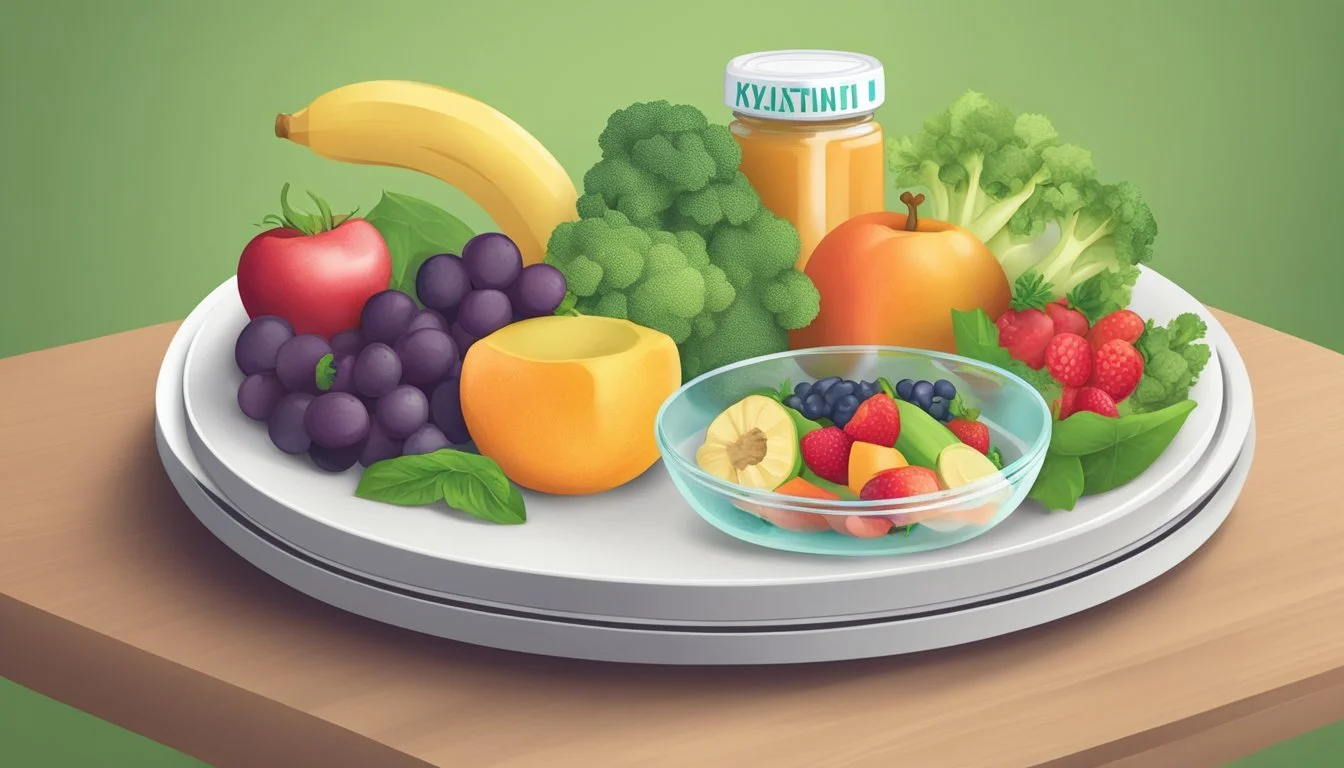Is Xylitol Vegan?
Unveiling the Truth About This Sweetener
Xylitol is a sugar alcohol commonly used as a sweetener, renowned for its ability to provide a sweetness comparable to sugar but with fewer calories. It's extracted from various plant materials, most notably from birch wood or from plant fibers like corn husks and oats. The appeal of xylitol extends beyond its low-calorie profile; it also has a minimal impact on blood sugar levels, making it a favored option among those monitoring their glycemic index.
The question of whether xylitol is vegan arises from concerns surrounding the production processes rather than the source material itself. Generally, xylitol is considered vegan since it does not contain animal-derived ingredients. Nonetheless, vegans may need to be vigilant about the manufacturing specifics of certain xylitol products. This is because some sugar refining processes, although not directly related to xylitol synthesis, may involve bone char – obtained from cattle bones – particularly in the case of certain sugars refined in the United States. Consequently, vegans often seek brands that assure a vegan-friendly production process, free from any animal-derived substances.
What Is Xylitol?
Xylitol stands as a sugar alcohol widely used as a natural sweetener. It offers a comparable sweetness to sucrose, yet with fewer calories, catering to those seeking sugar alternatives.
Chemical Structure and Properties
Xylitol is composed of a five-carbon structure, making it a pentitol. Chemically, it's referred to as a sugar alcohol because its molecular structure shares characteristics of both sugars and alcohols. Xylitol's sweetness is similar to that of sucrose, but it carries approximately 40% fewer calories. It also has a low glycemic index, which means it does not cause a rapid increase in blood sugar levels. This property makes it a preferred sweetener for individuals managing blood sugar concerns.
Natural Sources of Xylitol
The primary natural sources of xylitol are birch trees and various hardwoods. It also naturally occurs in smaller amounts in many fruits and vegetables. In birch trees, xylitol is derived from xylose, which is a wood sugar. Another commercial source is from corn cobs, as they are a sustainable resource with a high yield of xylose, which can be further processed into xylitol.
Xylitol in the Market
In the commercial market, xylitol is present in a variety of products. It's especially popular in chewing gum and oral care products because of its ability to inhibit the growth of bacteria that can cause dental plaque and cavities. Additionally, it is used in sugar-free confections, pharmaceuticals, and as a food additive. Labels may identify it under 'sugar alcohols' in the nutritional information panel. When purchasing xylitol products, consumers should verify the source if they are concerned about ensuring the sweetener aligns with vegan preferences, as most commercial xylitol aligns with vegan standards but sourcing and production practices can vary.
Xylitol and the Vegan Lifestyle
The consideration of xylitol as vegan-friendly hinges on its production process and the strict adherence to a plant-based lifestyle free from animal exploitation.
Vegan Definition and Principles
Veganism is a lifestyle choice that involves abstaining from the use of animal products and byproducts. A vegan diet focuses on plant-based foods while avoiding meat, dairy, and other substances derived from animals. The vegan lifestyle extends beyond dietary choices to exclude animal exploitation in all forms, emphasizing ethical and often environmental considerations.
Animal Product Derivatives and Veganism
Animal product derivatives are substances sourced directly or indirectly from animals. For an item to be considered vegan-friendly, it must not contain any such derivatives. Unlike a vegetarian diet, which may include animal-derived products like honey or dairy, a vegan diet strictly avoids them in favor of wholly plant-based options.
Xylitol's Vegan Status
Xylitol is a sweetener classified as a sugar alcohol, primarily extracted from plant-based sources such as birch trees or corn cobs. Since it can be produced without the use of animal products, xylitol is generally deemed vegan-friendly. However, vegans should be aware that some production methods might involve bone char—typically used to whiten sugar—as a potential point of contention within vegan circles. Diligence is advised to ensure the xylitol chosen aligns with vegan principles.
Health and Nutritional Impact
Xylitol, as a sugar alcohol, has unique health and nutritional properties that distinguish it from other sweeteners. While providing a sweet taste, it also offers benefits for dental health and has a minimal impact on blood sugar levels.
Xylitol's Caloric Content
Xylitol contains approximately 2.4 calories per gram, which is lower than the 4 calories per gram provided by sucrose (table sugar). This reduced caloric content can make xylitol an attractive sweetener for those seeking to reduce their overall calorie intake without sacrificing sweetness.
Dental Health Benefits
Xylitol is acclaimed for its dental health benefits and is commonly added to toothpaste and chewing gum. It has been shown to reduce tooth decay and cavities by inhibiting the growth of the bacteria Streptococcus mutans, which is responsible for plaque formation. Regular consumption of xylitol-containing products can promote dental health by maintaining a neutral pH level in the mouth and preventing bacterial proliferation.
Glycemic Index and Diabetes
The glycemic index (GI) of xylitol is around 7, considerably lower than that of regular sugar, which has a GI of about 65. Because of its low GI, xylitol has a negligible effect on blood sugar levels, making it a safe sweetener for individuals with diabetes. This sweetener does not cause the sharp spikes in blood sugar that can result from consuming foods with a high glycemic index, thus aiding in the management of blood glucose levels.
Food Production and Ingredients
Xylitol's status as a vegan-friendly sweetener hinges on its manufacturing process and the ingredients used. Consumers comparing sweeteners and identifying vegan options must consider these factors.
Manufacturing Process of Xylitol
Xylitol is produced from plant materials such as birch wood or other fibrous vegetation. The key steps in its production include:
Extraction: Xylose is extracted from the plant material.
Hydrogenation: Xylose is converted into xylitol through hydrogenation.
Purification: The resulting product is then purified.
During purification, some manufacturers may use bone char for filtration. Bone char, derived from animal bones, is not aligned with vegan principles. However, many brands opt for alternative filtering methods, making their xylitol vegan-friendly.
Comparison with Other Sweeteners
Xylitol is one of the sugar alcohols used as a sugar substitute, similar to others like erythritol and sorbitol. Unlike artificial sweeteners, sugar alcohols are considered natural sweeteners as they are derived from natural sources. In comparison to sugar, xylitol has a lower glycemic index and does not promote tooth decay.
Labeling and Identifying Vegan Products
To ensure xylitol is vegan, consumers should:
Look for labels indicating "vegan" or "no bone char."
Check ingredients lists for mentions of bone char or other animal-derived products.
Vegan certification on labels serves as a reliable indicator of a product's compliance with vegan standards.
Environmental and Ethical Considerations
The environmental and ethical implications of xylitol production are complex, encompassing its agricultural impact, resource sustainability, and ethical production practices.
Impact on Agriculture and Deforestation
Agricultural practices for the plants used to make xylitol, like corn or birch trees, can lead to deforestation and habitat loss when not managed responsibly. The expansion of agricultural land to meet the demand for these crops may contribute to the degradation of natural environments.
Sustainability of Production Resource
Xylitol is derived from renewable resources, but its sustainability depends on the methods of cultivation and resource management. Practices such as crop rotation and sustainable farming can enhance the renewability of these resources. However, overutilization without proper stewardship can compromise the sustainability of these plant sources.
Ethical Considerations in Production
The production process of xylitol must be scrutinized for its ethical implications. This includes ensuring that no animal-derived materials are used for those seeking vegan products. Additionally, the treatment of workers and the impact of the production process on surrounding communities must be considered to uphold ethical standards.
Dietary Considerations and Usage
Xylitol, as a sugar alcohol, plays a versatile role in dietary considerations due to its low glycemic impact and calorie content. It offers alternatives for specific diet plans and has implications for digestive tolerance.
Xylitol in Weight Management
Xylitol contains roughly 2.4 calories per gram, which is about 40% less than that of sugar, making it a preferred sweetener for individuals managing their weight. As a carbohydrate that has a low impact on blood sugar levels, it is well-suited for weight control plans and for those monitoring their caloric intake.
Usage in Low-Carb and Keto Diets
For those following a low-carb or keto diet, xylitol's low carbohydrate content does not significantly disrupt ketosis, the metabolic state at the heart of these diets. It offers a sweet taste without the high carb count of regular sugar, although individuals should monitor their overall consumption to stay within their carbohydrate limits.
Digestive Tolerance and Side Effects
While xylitol is generally safe for consumption, some individuals may experience digestive issues such as gas, bloating, diarrhea, or constipation. These side effects are typically associated with excessive consumption, as the body can have difficulty absorbing large amounts of sugar alcohols. It is important for consumers to adhere to recommended servings to mitigate potential health concerns related to digestive tolerance.
Food Applications
Xylitol serves as a versatile sugar substitute enhancing sweetness in various food items without the caloric impact of traditional sugars. This characteristic makes it particularly beneficial in the food industry, where it is utilized to create reduced-sugar or sugar-free options.
Xylitol in Baked Goods and Chocolates
In baked goods, xylitol is a frequent choice for those aiming to reduce sugar intake while maintaining a desirable sweet taste. It acts as a humectant, retaining moisture which is essential in producing baked products with a soft texture. Bakers often use xylitol in cakes, cookies, and pastries. Chocolate manufacturers incorporate xylitol into their recipes to provide a lower-calorie product that still satisfies the sweet cravings. This sugar alcohol does not contribute to tooth decay, making it a favorable ingredient in sugar-free chocolates and confectioneries.
Use in Beverages and Mints
With regards to beverages, xylitol is commonly found in sugar-free drink syrups and diet sodas. It dissolves well and provides a similar level of sweetness as regular sugar, making it ideal for use in a variety of drinks. Mints and chewing gums frequently contain xylitol because of its dental benefits, refreshing taste, and its cooling effect upon dissolution. Notably, xylitol is beneficial for oral health as it can reduce bacteria levels in the mouth, thus it’s a popular choice in dental care gums and mints.
Xylitol Alternatives
When considering alternatives to xylitol, there are a multitude of options for both natural and artificial sweeteners. Each alternative has its own profile of taste, texture, and nutritive value, catering to a variety of dietary needs and preferences.
Natural Sugar Alternatives
Agave Nectar: It’s a natural sweetener from the agave plant, sweeter than sugar, and can be used in smaller quantities.
Maple Syrup: Extracted from the sap of maple trees, it offers a distinctive flavor and can replace sugar in various recipes.
Coconut Sugar: Sourced from the sap of the coconut palm, it has a lower glycemic index compared to regular sugar.
Dates & Date Syrup: Dates can be blended into a paste or syrup, serving as a whole-food sweetener rich in fiber.
Honey: Although not vegan, it's a natural sweetener commonly used in a variety of dishes.
Stevia: A zero-calorie sweetener derived from the leaves of the Stevia plant, it is much sweeter than sugar and can be used in minute quantities.
Artificial Sweetener Options
Sorbitol: Similar to xylitol, it's a sugar alcohol with a lower caloric content than sugar, and well-suited for diabetic diets.
Erythritol: A sugar alcohol like xylitol, it has almost no calories and does not spike blood sugar levels.
Sucralose: A non-caloric synthetic sweetener, often used in baking due to its stability at high temperatures.
These alternatives offer versatility in terms of dietary needs, flavor profiles, and cooking applications, enabling individuals to find suitable substitutes for xylitol that align with their specific preferences and health considerations.
Practical Tips
When incorporating xylitol into a vegan diet, it's important to focus on product purity to ensure it aligns with vegan principles. Consumers should also consider the potential benefits of xylitol, such as weight management, due to its low-calorie profile.
Incorporating Xylitol into a Vegan Diet
Xylitol is a low-calorie sweetener derived from plant materials, making it a vegan-friendly option. Vegans can use xylitol as a direct substitute for sugar in a variety of recipes, from baked goods to beverages. Its comparable sweetness allows for easy adjustments in recipes, and its low glycemic index makes it a preferable choice for those monitoring their sugar intake.
Baking: Substitute sugar with xylitol in a 1:1 ratio.
Beverages: Sweeten coffee, tea, or smoothies without the high calories.
Ensuring Product Purity and Quality
While xylitol is generally vegan-friendly, consumers should seek out brands that certify their xylitol is free from animal-derived processing aids like bone char. Quality checks and brand research can help verify that xylitol is produced ethically and sustainably.
Brand Research: Look for certifications or statements regarding vegan practices.
Ingredient Sources: Prefer brands that disclose their plant-based sources, such as hardwood or corn cobs.
Safety and Regulatory Aspects
In addressing the safety and regulatory aspects of xylitol, it is crucial to examine the stance of authoritative bodies, such as the FDA, and take into account health precautions backed by scientific research.
FDA Regulations and Recommendations
The FDA recognizes xylitol as generally recognized as safe (GRAS) for use in foods. This classification is based on extensive research and evaluation of its safety for consumption. The regulatory body sets forth specific recommendations for sugar alcohols like xylitol, given their role in daily sugar intake and contribution to the total carbohydrates in a diet. They recommend that it should be used within the acceptable daily intake levels, which have been established based on scientific evidence to ensure they are safe for human consumption.
Acceptable Daily Intake (ADI): Established based on body weight
Usage in Food Products: Approved as a sweetener and flavor enhancer
Xylitol, as a sugar alcohol, provides a sweet taste satisfying the sweet tooth without contributing to a rise in blood sugar levels, which is beneficial for individuals with diabetes or those monitoring their blood glucose.
Health Precautions and Research
Research into the health benefits and precautions of xylitol is ongoing. Although xylitol is associated with positive effects on oral health, such as reducing the risk of dental caries, consumers should be mindful of potential health risks. Ingesting high amounts of xylitol can lead to gastrointestinal discomfort and laxative effects.
Oral Health: Linked to a reduction in dental plaque and tooth decay
Gastrointestinal Effects: Potential for discomfort when consumed in excess
Ongoing studies continue to investigate the broader health benefits of xylitol. These include potential prebiotic effects that could support digestive health. However, scientists emphasize that exceeding recommended daily amounts may counteract these benefits.
It is important for consumers to stay informed about the latest research and follow the guidelines provided by reliable sources such as the FDA, ensuring they consume xylitol within recommended safety margins.
Advanced Topics in Xylitol
This section delves into the sophisticated aspects of xylitol, including its interaction with oral bacteria, processing methods involving advanced chemistry, and the frontier of research expanding its potential applications.
Molecular Impact on Oral Bacteria
Xylitol is renowned for its unique interaction with Streptococcus mutans, bacteria primarily associated with dental cavities. These microorganisms, when they metabolize sugars, contribute to tooth decay by producing acid. In contrast, xylitol is not fermentable by Streptococcus mutans, thus inhibiting their growth and acid production which reduces the incidence of cavities.
Chemical Processing Techniques
The production of xylitol involves complex chemical processes. One central method is hydrogenation, where xylose is converted into xylitol using a catalyst under high pressure and temperature. Purification techniques such as activated carbon treatments and ion exchange resins ensure the xylitol is free from impurities. These techniques ensure the end product aligns with strict quality standards and confirms its vegan status by not using any animal-derived substances.
Emerging Research and Innovative Uses
Research constantly uncovers new applications for xylitol, stretching beyond sweetening capabilities. Studies suggest benefits in preventing metabolic issues like obesity and type 2 diabetes due to the body's different processing of xylitol compared to regular sugar. Furthermore, innovative uses in fields like otolaryngology show potential, pointing to xylitol's efficacy in preventing certain infections. It's important to monitor such research as it often undergoes animal testing before reaching human trials, raising ethical considerations for vegan consumers.











